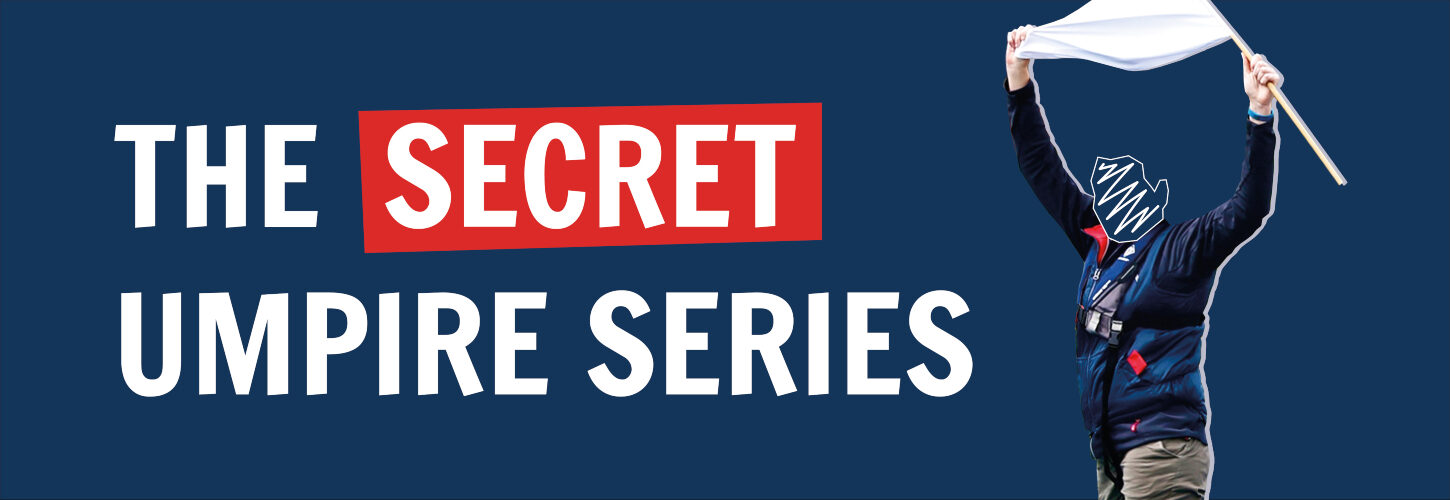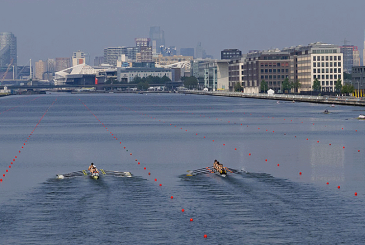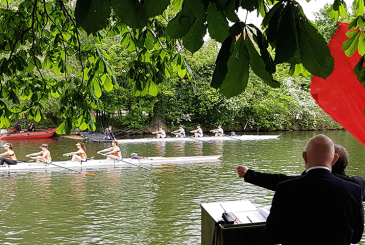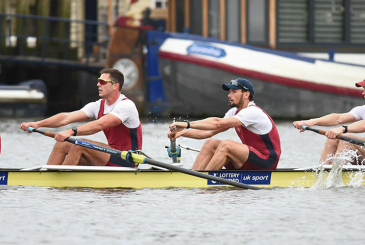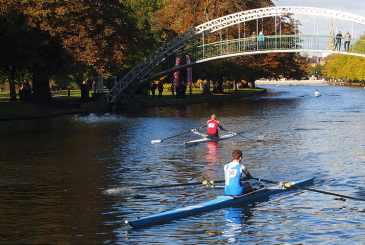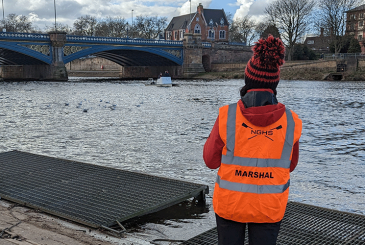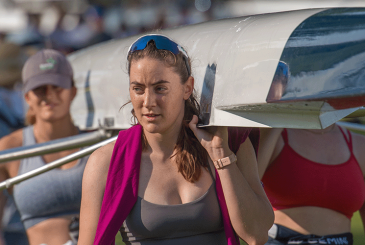What’s it like to umpire at an Olympics? In a special article ahead of Tokyo 2020, Jack Dryden talks to a former Olympic umpire to find out
The Olympics are the pinnacle to which many rowers aspire, but being part of the Games is equally the highest accolade for an umpire. To find out what it is really like to represent Britain on the international jury, our reporter caught up with a past Olympic umpire, speaking under strict anonymity.
Our Secret Umpire got their domestic licence back in 1979. However, it was some 13 years before they took the next step to qualify for multi-lane events, let alone considered seeking international selection!
“One of the things that I always used to thoroughly enjoy was the nice bendy river courses. For quite a long time, I thought much better to stick to that and not do multi-lane, but eventually I got my arm twisted! It was fairly soon after that I got nominated to do the World Rowing exam.”
Even once qualified with World Rowing, getting a chance to adjudicate at the Games is much harder than you might think. Competition to secure a jury place at any A-list international event is tough, let alone for the Olympics.
“There aren’t many events available. In every three World Cups, we might only get allocated a jury member for two. With over 20 World Rowing umpires in Britain, everybody has to go a few years between getting one of those A-List events.”
The Olympics, as my contact explains, is another matter altogether.
“There are only 20 places available every four years from between almost 500 FISA umpires from 68 member federations.”
However, there is one happy exception which secured our Secret Umpire their spot.
“In 2012, Britain was fortunate in that, as host nation for the London Games, we were allocated three places on the Olympic jury.”
Jackpot!
I asked if they remember how they got the news?
“I got tipped off by one of my friends who was involved in the World Rowing admin, and he’d seen the list on an internal mailing. But the official list was published in December 2011, so that was a nice early Christmas present!”
The London Olympic Regatta went down in the history books for its ‘Dorney Roar’, with some of the loudest support heard at any international event to date. I asked our umpire what it felt like on the water?
“After the final of the women’s double with Katherine Grainger, I took a chance to congratulate her”
“It started even when you were up at the start. As soon as GB was mentioned this enormous roar would come up. From 2,000m away it was still obvious.”
A wonderful atmosphere for athletes perhaps, but for umpires this was quite a concern.
“If we had to warn any of the crews during the race, the chances of them hearing what we were saying would be next to nothing. They should still see the white flag, but they certainly wouldn’t be able to hear us shouting.”
Making difficult decisions in those tense moments, I asked our contact how the worldwide audience watching at home added to the pressure? His answer surprised me.
“You know that there’s lots of folks watching, but the main concern is not the spectators, it’s the athletes. They put most of their lives into aiming for the Olympics. This chance comes only once in the four-year period, and for many only once in a lifetime. You certainly don’t want to screw things up for them.”
It’s something our umpire was mindful of in every interaction, especially on control commission duties where final checks are made before crews can take to the water.
“In general, you try not to get too involved because they obviously need to concentrate. The last thing they want is some official engaged in lengthy conversations with them.”
However, our umpire did have one rather special encounter in the boating area.
“After the final of the women’s double with Katherine Grainger, I took a chance to congratulate her.” Even eight years later the race is still a fond memory. “I got to watch that race from the launch while we waited in front of the grandstand and the big screen – that was the best view! I told my driver that whatever happened I was going to be in tears afterwards.”
Our contact has now stepped back from the international stage, but they still umpire regularly for domestic events.
“I’ve applied for another renewal, and we’ll see how I go. I’m still enjoying it.” That said, they are keen to keep their ability in check to avoid a run in with the multi-lane commission.
“I’ve told my friends in the umpiring world, if you think I’m slowing down, for goodness sake tell me and let me drop out, rather than be thrown out!”
I asked if they had any advice for umpires seeking to qualify for international juries?
“Just do plenty of umpiring. One of the advantages we have in Britain is that there are a decent number of multi-lane events, both domestically and around Europe. Whether you are just starting as a regional umpire or trying to reach an international level, do plenty of umpiring and keep in the swing of things.”
In 2016 Britain was not allocated an Olympic jury place, but Paddy Ibbotson will be umpiring in Tokyo and is sure to savour this once-in-a-lifetime experience.


